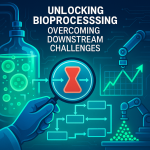🔬 This automated technology combines multiple processes, enhancing efficiency in cell therapy manufacturing.
📈 It aims to reduce contamination risks and production costs while increasing product quality.
🧫The prototype is currently tested in Portugal, with plans for wider release within two years.
💡 Limula innovates to make cell therapies more affordable for patients.
Introduction:
The article discusses Limula’s innovative approach to cell therapy manufacturing through an end-to-end processing platform called LimONE, which has recently entered beta testing. This system aims to streamline and enhance the efficiency of cell processing, addressing significant challenges faced by manufacturers in the cell therapy industry.
- Cell therapy manufacturing currently relies on outdated equipment, often leading to manual handling, contamination risks, and increased costs for therapies.
- Limula’s LimONE platform integrates multiple steps of cell therapy into a single device, facilitating a closed and automated system from lab-scale research to commercial production.
- The design combines fermentation and centrifugation processes to minimize cell loss and improve product quality, which is essential for scalable manufacturing.
- Beta testing with Stemmatters in Portugal has begun, showing promising results in cell activation and transfection processes necessary for effective gene therapy.
- LimONE is adaptable for both low-volume personalized therapies and larger production demands, aiming to make cell therapies more accessible and affordable.
Conclusion:
Limula’s LimONE platform represents a significant advancement in the field of cell therapy manufacturing, potentially transforming how these therapies are produced and delivered. As beta testing progresses and valuable feedback is obtained, the technology could pave the way for more efficient, automated, and scalable therapeutic solutions, making advanced cell therapies more accessible to patients worldwide.



